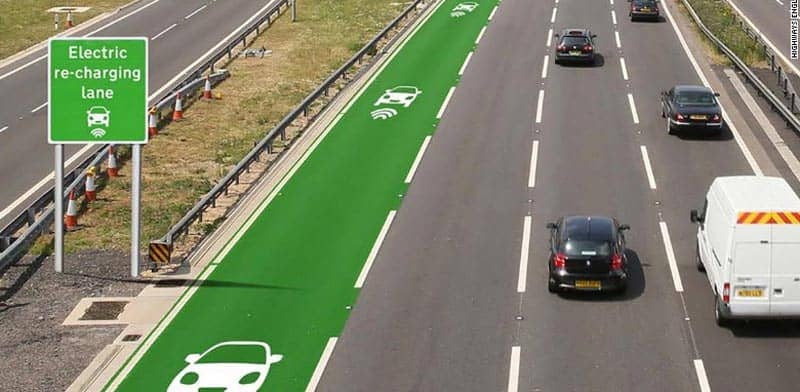For a world attempting to move towards sustainable energy, electric vehicles are a crucial element. The only restraint in using Electric vehicles for regular commute is their limited range and long charging times. More people have been inclined to use electric cars with the increase in charging stations but even the fast charging time is still much longer than a fossil fuel refill. We have seen mobile phone wireless charging technology in practice, but that is about to get to a much bigger scale with wireless charging roads.
ElectRoad, An electric tech company has partnered with the government of Israel to develop a technology assisting the use of electric buses at a large scale. The company has proved successful in the initial testing. The Israel Ministry of Transport and Road Safety granted an investment of $120,000 to ElectRoad after the successful testing.
The 11-mile shuttle system between Eilat and the Ramon International Airport will use the wireless tech roads for the first time. According to the chief scientist at the Ministry of Transport, Shay Soffer it is a big stage for technology who said, “Tel Aviv is the biggest city [in Israel], like New York on a small scale. If it will work in Tel Aviv, it will work anywhere. I think in 10 years you’ll see a lot of solutions like ElectRoad in our transportation.”
Electromagnets and inverters run along the sides of the roads to power the copper plates that are embedded in the entire path. Similar plates are installed on the underside of the buses, and the interaction of two results in power transfer. The system would ease the transition from fuel vehicles to electric vehicles at least until the prices of car batteries decline significantly.
The primary testing of the technology has appeared successful, but it has significant infrastructure limitations. Adapting the current road infrastructure with the technology will come at an enormous cost. The company claims it can sustain 1 kilometer of a road, with multiple cars for an entire evening easily. We do not know if that is practical or not. According to some engineers, the infrastructure cost of the system is not justified according to the functionality it offers.
The co-founder and CEO of ElectRoad, Oren Ezer says that the roads are dual purpose. They can be used to charge the car batteries while using the car’s braking friction to put energy back into the system. There is no plan to add this feature to the technology yet, but it happens, the costs might just be worth it.
It is not just Israel considering the possibility of wireless tech for electric vehicles. Other automakers like BMW plan to add inductive charging ability to the 530e 2018 model. If the technology proves useful even for mass transit, it will be responsible for a significant reduction in vehicle emissions.



